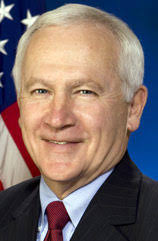Submitted Article
The state Senate yesterday (June 14) approved, by a solid 35-15 bipartisan, veto-proof vote, a bill that would require Legislative approval of the Governor’s proposal to have Pennsylvania join the Regional Greenhouse Gas Initiative (RGGI).
Senate Bill 119, which creates the Pennsylvania Carbon Dioxide Cap and Trade Authorization Act, specifically prohibits the Department of Environmental Protection (DEP) from unilaterally joining RGGI – or any similar pact — without Legislative approval.
The bill was supported by every Senate Republican and six Democrats: James Brewster, Wayne Fontana, Marty Flynn, John Kane, Tina Tartaglione, and Lindsey Williams.
“A carbon tax is a major energy and fiscal policy initiative that – if it is to be imposed on Pennsylvania employers and ratepayers – must be approved by the General Assembly,” Sen. Yaw said. “RGGI is a superficial fix, at best. It does very little to reduce greenhouse gas emissions, moves electric generation to Ohio and West Virginia, all while putting hardworking Pennsylvanians out of work. The RGGI initiative also creates serious constitutional questions of checks and balances between co-equal branches of government. Senate Bill 119 restores that balance by requiring legislative approval before Pennsylvania imposes a carbon tax on employers operating in the Commonwealth.”
Under Senate Bill 119, the DEP would be required to publish its RGGI legislation in the PA Bulletin and provide a public comment period of at least 180-days. During the comment period, DEP would be required to hold a minimum of four public hearings in locations that would be directly affected economically by the proposal.
Following the public comment period, DEP would be required to submit a report to the House and Senate Environmental Resources & Energy Committees detailing the specific economic and environmental impacts that joining RGGI would have on impacted communities, the Commonwealth, and the PJM Interconnection region.
On October 3, 2019, Governor Wolf directed the Department of Environmental Resources (DEP) to join RGGI — a collaboration of 11 Northeast and Mid-Atlantic states. If Pennsylvania joins RGGI, it would be the only major energy producing state in the compact.
The RGGI states (Connecticut, Delaware, Maine, Maryland, Massachusetts, New Hampshire, New Jersey, New York, Rhode Island, Vermont, and Virginia) set a cap on total Carbon Dioxide (CO2) emissions from electric power generators in their states. Power plants must purchase a credit or “allowance” for each ton of CO2 they emit.
Senate Bill 119 mirrors the language of Senate Bill 950 and House Bill 2025 that were introduced during the last Legislative Session. The Governor vetoed House Bill 2025 – which had received bipartisan support in both chambers – last September.

